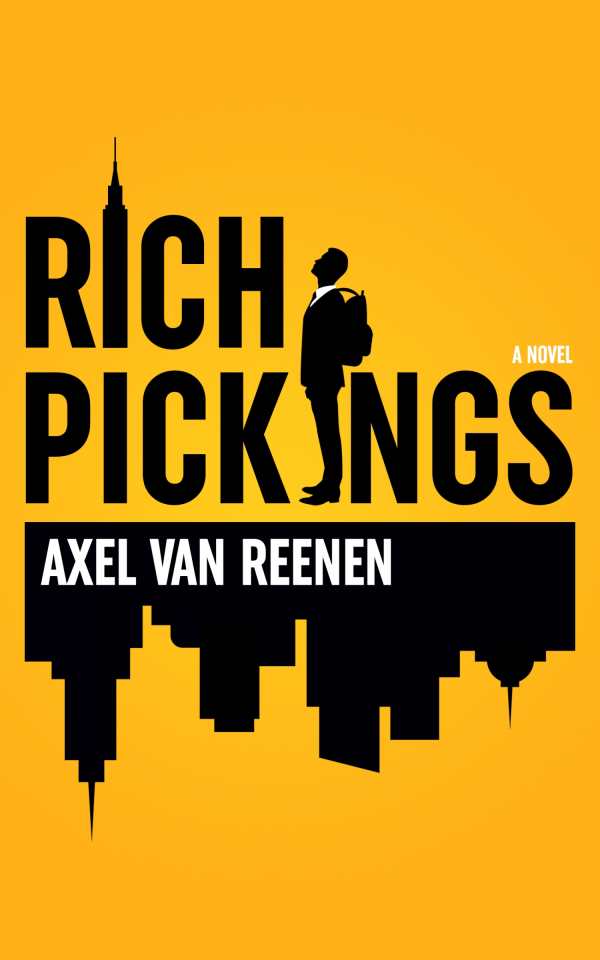
Rich Pickings
Rich Pickings is a novel that evokes recent financial history well, showing how easy it is to be defined by what you do for money.
In Axel van Reenen’s novel Rich Pickings, a naïve New Zealander breaks into the high-stakes arena of multinational investment banking just before the Great Recession.
Jake is fresh out of Oxford, having earned a doctorate in economics before landing a coveted associate spot at a top-tier investment bank in London. Soon, he finds himself on the emerging markets desk, helping to orchestrate a bond offering by a utility company in southern Africa, enjoying exotic business trips, and working weekends to keep pace with his colleagues, and with market fluctuations that never seem to slow down.
But the frantic clip of Jake’s new life exacts a toll on his mental and physical health, increasing his anxiety to the point that, at his supervisor’s suggestion, he visits the company doctor for medications to control his nerves, help him sleep, and keep him working well past the point of natural exhaustion. Bold descriptions of his claustrophobic commutes on the London tube, the bank’s frenetic offices, and Jake’s hard-charging coworkers create a sense of almost overwhelming apprehension, as does his increasing reliance on medications to maintain some sense of control over his life and worries. An authentic sense of the story’s setting—the ebullient financial industry of the mid-2000s, before the markets tanked—arises.
Other than enjoying an occasional squash game or evening gin and tonic with roommates, Jake does little else but work. And though the novel is written in the form of Jake’s journal entries, his backstory is also in short supply. His recollections about Oxford center on laboring to finish his doctorate in time to accept the job offer from the bank; he only mentions his family a few times, making one brief trip to New Zealand that does little to illuminate his personality or past. As such, while the novel hints that Jake questions the social value of his job, it’s hard to know how it might challenge his moral compass and motivations on a deeper level.
The journal entry format sharpens the story’s focus on the work of investment banking, with each entry starting with a date and average emerging market bond spread––an effective design feature that provides a timeline and an instant indication of what Jake defines as important. Many entries, especially those made during Jake’s trips to Africa, focus on meetings and the minutiae behind bond offerings. These details are in keeping with Jake’s obsessive work habits, but do little to advance the narrative or illuminate who Jake is as a person outside of his new profession. The surplus of secondary characters in Jake’s workplace also leads to distracting errors in dialogue attributions.
Jake sometimes records, then reflects upon, arguments about whether investment banking has much purpose beyond collecting fees and doling out bonuses. But he finds these concerns easy enough to shelve, and this theme stays in the background as Jake begins to enjoy more of the trappings of his generous starting salary. As the novel comes to a close, the personal and the professional become even more intertwined; Jake is caught up in the details of his next deal, having mastered many intricacies of the world of investment banking, but having learned little about himself.
Rich Pickings is a novel that evokes recent financial history well, showing how easy it is to be defined by what you do for money.
Reviewed by
Charlene Oldham
Disclosure: This article is not an endorsement, but a review. The publisher of this book provided free copies of the book and paid a small fee to have their book reviewed by a professional reviewer. Foreword Reviews and Clarion Reviews make no guarantee that the publisher will receive a positive review. Foreword Magazine, Inc. is disclosing this in accordance with the Federal Trade Commission’s 16 CFR, Part 255.
